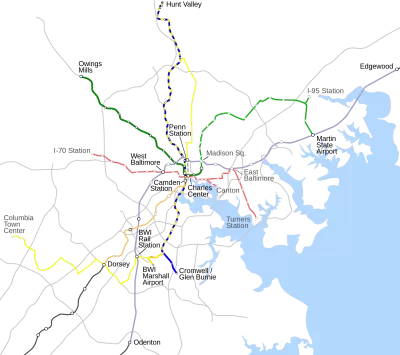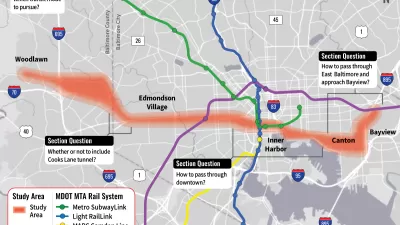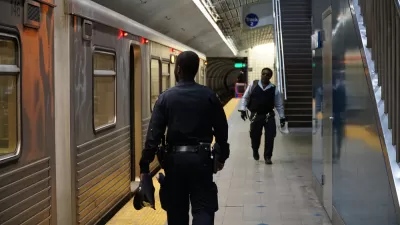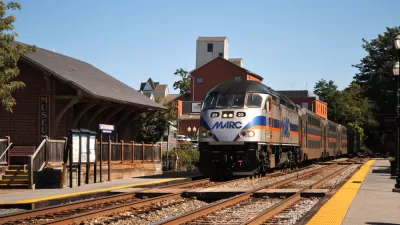One of the most infamously anti-transit decisions of the past decade—Maryland Gov. Larry Hogan’s decision to cancel the Baltimore Red Line system expansion—could be reversed by the incoming governor.

Maryland Governor-elect Wes Moore (D) recently promised to build the Red Line rail line planned for a 14-mile stretch in Baltimore. Moore’s predecessor, current Governor Larry Hogan (R), canceled the project in 2015.
Kriston Capps has the scoop on one of the most potentially momentous outcomes for transit to emerge from the November 2022 elections. In an interview with Bloomberg News, Gov.-elect Moore promised to raise the Red Line from the dead, and even build the project during his tenure.
According to Capps, prospects for the plan’s revival are good.
The recent election in Maryland follows a windfall of approvals for new federal spending on transit initiatives, namely through the bipartisan Infrastructure Investment and Jobs Act signed by President Joe Biden in 2021. Democrats in Maryland have been eyeing the chance to revive the Red Line; senators Chris Van Hollen and Ben Cardin even added a line to the bill that would make past proposals eligible for renewed consideration, mentioning the Baltimore project by name.
Among transit advocates, Hogan will never shed the bad reputation created by the controversial decision to cancel the project. Capps explains the decision and the transportation priorities of the Hogan administration:
Just six months after taking office in 2015, the Republican governor hit the brakes on the 14-mile-long east-west light-rail line, declaring it a boondoggle and returning $900 million in guaranteed funding to the federal government. State funds earmarked for the project were spent on roads instead, mostly in rural and suburban areas, as well as on the Purple Line in the suburbs of Washington, DC.
The decision provoked criticism in the media, a civil rights complaint, and continued negative deep into Hogan’s tenure. Moore told Capps that Hogan’s decision to cancel the project was “almost disqualifiable.”
FULL STORY: Maryland’s New Governor on Baltimore’s Red Line: ‘We’re Going to Get It Done’

Planetizen Federal Action Tracker
A weekly monitor of how Trump’s orders and actions are impacting planners and planning in America.

Maui's Vacation Rental Debate Turns Ugly
Verbal attacks, misinformation campaigns and fistfights plague a high-stakes debate to convert thousands of vacation rentals into long-term housing.

San Francisco Suspends Traffic Calming Amidst Record Deaths
Citing “a challenging fiscal landscape,” the city will cease the program on the heels of 42 traffic deaths, including 24 pedestrians.

Amtrak Rolls Out New Orleans to Alabama “Mardi Gras” Train
The new service will operate morning and evening departures between Mobile and New Orleans.

The Subversive Car-Free Guide to Trump's Great American Road Trip
Car-free ways to access Chicagoland’s best tourist attractions.

San Antonio and Austin are Fusing Into one Massive Megaregion
The region spanning the two central Texas cities is growing fast, posing challenges for local infrastructure and water supplies.
Urban Design for Planners 1: Software Tools
This six-course series explores essential urban design concepts using open source software and equips planners with the tools they need to participate fully in the urban design process.
Planning for Universal Design
Learn the tools for implementing Universal Design in planning regulations.
Heyer Gruel & Associates PA
JM Goldson LLC
Custer County Colorado
City of Camden Redevelopment Agency
City of Astoria
Transportation Research & Education Center (TREC) at Portland State University
Jefferson Parish Government
Camden Redevelopment Agency
City of Claremont





























